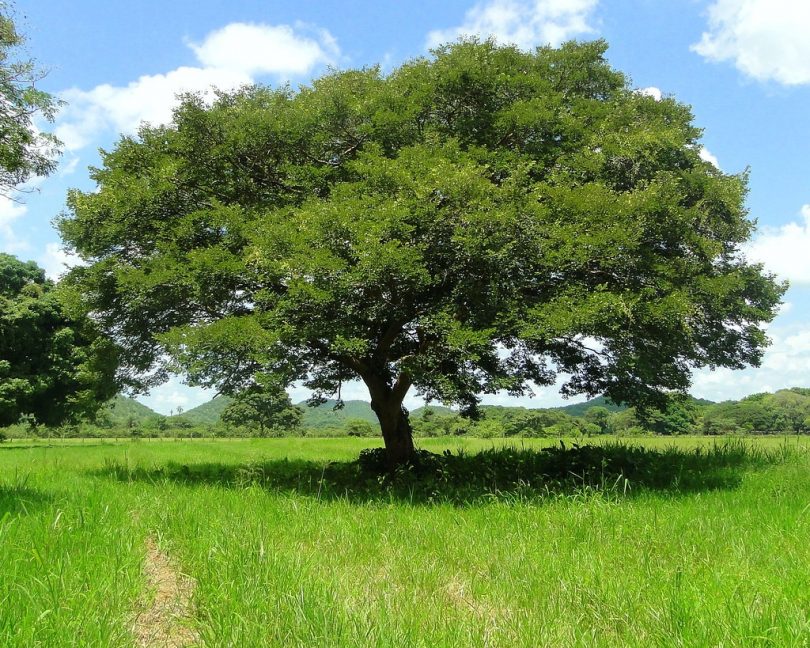Copaiba refers to copaiba oil, resin oil, and/or balsam, which come from a wide variety of copaiba trees that belong to the Copaifera genus found in the Amazon. Its roots in folk medicine reach all the way back to the 16th century in Brazil, now its main producer. [1]
Historically, its main application has been anti-inflammation, but many studies explore other facets of its therapeutic potential.
Anti-Inflammation
This is the most investigated realm of copaiba’s medicinal benefits.
In a study on a mouse model of multiple sclerosis (MS), copaiba was found to reduce both the production of inflammatory cytokines, which fuel autoimmune inflammatory diseases like MS, and the amount of free radicals that cause oxidative stress and respectively cell damage. [2]
These findings are in line with another study that focused on tongue injuries. [3] Treatment with copaiba resin oil resulted in lower levels of immune cells associated with inflammation.
Another study even investigated how copaiba resin oil’s anti-inflammatory properties translate to neuroprotection and neural disorders, providing “the first experimental evidence that [copaiba resin oil] is an anti-inflammatory and neuroprotective agent following an acute damage to the [central nervous system].” [4] Interestingly, the study largely attributes these properties to copaiba’s sesquiterpene content and beta-caryophyllene in particular.
One investigation explored the chemical composition and anti-inflammatory activity of copaiba oils from three different copaiba species. [5] The star of the show was beta-caryophyllene once again, “followed by alpha-humulene, alpha-copaene, alpha-bergamotene, delta-cadinene, with different amounts in each oleoresin.”
Building on these promising findings, a more recent study [6] examined how copaiba stacks up against arthritis, one of inflammation’s worst creations, plaguing more than 54 million Americans (another report puts the number at 91 million). However, the scientists are lukewarm and emphasize the lack of sufficient evidence to support copaiba efficacy against arthritis.
“Basic research has suggested mechanisms of benefit of this essential oil in treating inflammatory arthritis,” said Charles H. Hennekens, M.D., Dr.P.H., senior author of the paper. “Nonetheless, the only published data on copaiba on humans includes one case series and one small randomized trial of another inflammatory condition and not arthritis.”
The study notes that the “research challenge is to test topical copaiba versus a placebo in [arthritis] patients against a background of usual care in [randomized clinical trials] of sufficient size, dose, and duration.” [6]
Anti-Leishmaniasis
Leishmaniasis is most commonly known in its cutaneous (dermal) form that looks like lesions and ulcers. It’s caused by parasites and spread by sand flies.
Copaiba oil has been found to damage Leishmania parasites’ cells by increasing the permeability of their plasma membranes. [7] This is in line with the fact that copaiba reduced the size of cutaneous lesions in mice via oral and an oral-topical combo treatment. [8]
References:
- de Albuquerque KC, et al. Brazilian Amazon traditional medicine and the treatment of difficult to heal leishmaniasis wounds with Copaifera. Evid Based Complement Alternat Med. 2017;2017:8350320. doi:10.1155/2017/8350320. Journal Impact Factor = 2.064; Times Cited = 13 (Semantic Scholar)
- Dias DS, et al. Copaiba oil suppresses inflammatory cytokines in splenocytes of C57Bl/6 mice induced with experimental autoimmune encephalomyelitis (EAE). Molecules.2014;19(8):12814–12826. Journal Impact Factor = 3.267; Times Cited = 24 (Semantic Scholar)
- Teixeira FB, et al. Copaiba oil-resin (Copaifera reticulata Ducke) modulates the inflammation in a model of injury to rats’ tongues. BMC Complement Altern Med.2017;17:313, Journal Impact Factor = 2.833; Times Cited = 10 (Semantic Scholar)
- Guimarãs-Santos A, et al. Copaiba oil resin treatment is neuroprotective and reduces neutrophil recruitment and microglia activation after motor cortex excitotoxic injury. Evid Based Complement Alternat Med. 2012;2012. Journal Impact Factor = 2.064; Times Cited = 44 (Semantic Scholar)
- Veiga Junior VFV, et al. Chemical composition and anti-inflammatory activity of copaiba oils from Copaifera cearensis Huber ex Ducke, Copaifera reticulata Ducke and Copaifera multijuga Hayne–a comparative study. J Ethnopharmacol. 2007;112(2):248-54. Journal Impact Factor = 3.690; Times Cited = 177 (Semantic Scholar)
- Hebert P, et al. Treatments for inflammatory arthritis potential but unproven role of topical copaiba. Integrative Medicine. 2017. Journal Impact Factor = 2.446; Times Cited = 1 (Semantic Scholar)
- Oliveira dos Santos A, et al. Copaiba oil: An alternative to development of new drugs against leishmaniasis. Evid Based Complement Alternat Med. Journal Impact Factor = 2.064; Times Cited = 33 (Semantic Scholar)
- Oliveira dos Santos A, et al. Leishmania amazonensis: Effects of oral treatment with copaiba oil in mice. Experimental Parasitology. 2011;129(2):145-151. Journal Impact Factor = 1.690; Times Cited = 43 (Semantic Scholar)
Image Credits: barloventomagico / flickr; CC BY-NC-ND 2.0








